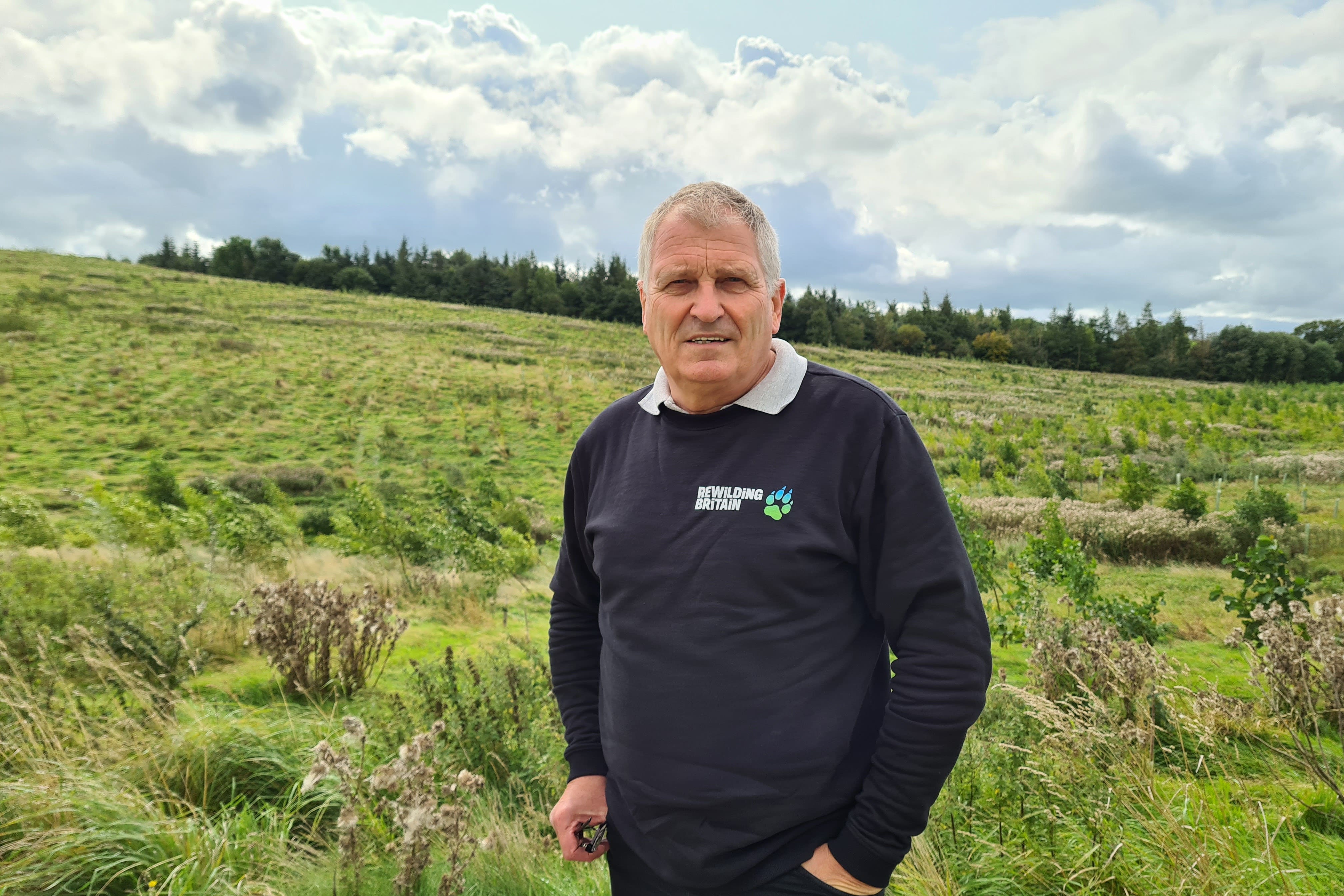Creating an ‘oasis of bio-abundance’ in the North Yorkshire countryside
The Broughton Sanctuary estate near Skipton is rewilding its sheep-grazed hillsides into woodlands rich with birds and insects.

After three years and 300,000 planted trees, parts of a North Yorkshire estate are now growing into a young woodland that is already becoming a new home for insects, rodents and birds of prey.
The Broughton Sanctuary near Skipton is around halfway through its rewilding project through which it aims to restore over 400 hectares of bare hillside that have been grazed by sheep for centuries.
Professor Alastair Driver, director of Rewilding Britain and Broughton’s special advisor, is overseeing the project, which will eventually have reintroduced beavers and cattle – the natural caretakers of the woodland.
Rewilding is the “large-scale restoration of ecosystems to the point where nature can take care of itself” the conservationist said, though in some areas, like the chilly hills of the Yorkshire Dales, it needs a kick-start.
Shoots of ash, beech, oak, aspen and willow emerge from the tops of plastic tubes guarding against hungry hares while a kestrel hovers above the brown, thistly scrub next to the emerald green neighbouring fields still occupied by sheep.
“You can see the difference,” said Prof Driver. “Generations of little feet compacting the soil means water runs right off it.”
Removing sheep is the first step towards growing a woodland that once matured, can absorb up to 60 times more water than open pasture, which reduces the chances of flooding for people living downstream.
Prof Driver wants to create wetlands and ponds on the estate and reintroduce beavers into a brook, all of which helps to store water on the hills while creating habitat for more species.
The team also plans on replacing an artificial wood of conifer with native trees and introducing short-horn cattle that will trample some of the vegetation and create space for seedlings.
They are also growing a wildflower meadow and allowing one field, previously used for growing animal feed, to regenerate of its own accord just to see what happens, and young ash trees have already began moving in.
As a result of all this, birds of prey are returning to feed on the increasingly bountiful supply of mice and voles scurrying through the bushes.
One night, eight barn owls were seen hunting in the same field.
“That’s unheard of,” Prof Driver said. “That shows you how much prey there is that they don’t have to compete with each other.”
Seed-feeding birds such as linnets and goldfinches are also returning as are invertebrates, which are “rocketing in abundance”.
Prof Driver said: “I’m capturing 10 times the number of moths as before rewilding. This is going to become an oasis of bio-abundance.”
Many farmers have reacted with hostility to the Rewilding Britain team’s efforts, at Broughton Sanctuary and elsewhere, because they worry about wildlife taking over areas that could be used for food production, Prof Driver said.
Most controversial of all is talk of reintroducing apex predators such as lynxes and wolves, which have long been extinct in Britain but remain important for their ecosystems as they would keep other species like deer in check.
We've been walking into this darkness and it's time to wake up
In their absence, land managers across the country routinely have to cull deer to stop them over-populating, with one National Trust estate in Derbyshire doing this to improve a woodland enough for the reintroduction of dormice.
Asked if wolves could ever return to the UK, Prof Driver said: “Not in my lifetime. Lynx is definitely doable.
“I’m not a fan of compensation schemes but we could reward farmers for allowing these animals on their land.”
He also said that when landowners come to him wanting to rewild he never advises them to take productive land out of use, adding: “Most estates don’t rewild the whole estate but only the most unproductive bits.”
Broughton Sanctuary’s owner Roger Tempest, whose family has run the land for 32 generations, described rewilding as “inevitable” and “common sense”.
He said restoring the “billiard table of land” is one function of his plan to help “outer nature” while his wellbeing centre and the retreats he offers at Broughton work to repair people’s “inner nature”.
“We’ve been walking into this darkness and it’s time to wake up,” he said.
Bookmark popover
Removed from bookmarks